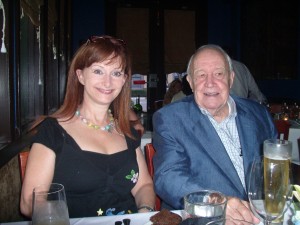How do you find an answer when expert opinion smashes into one another? I was at an NSANT meeting this weekend where two “technology” gurus both spoke. They gave conflicting information about different ways to solve similar problems. Especially where technology is concerned, this happens all the time. It’s not always a bad thing. Nor is it always a good thing. For any strategic thinker, it’s a critical concern.
My 83-year old father sits in the hospital right now, waiting on surgery tomorrow, in part because the doctors couldn’t agree on a diagnoses months earlier. This is the second time in three weeks we’ve been in the ER. Months ago, his internist’s diagnoses, “He can wait to get a pacemaker” was countered by the electro-cardiologist’s emergency surgery to actually place a pacemaker in his chest.
For every one person who insists, “This is the correct answer,” there is another person who insists only they have the correct answer. And, frankly, who cares, except when it is costing you tons of money, and, even more importantly, possibly your life? Then, it matters a great deal. So how do you decide?

(Dad and me at my birthday atAl Biernet’s a few months ago.)
Obviously, when even medical experts disagree on whether or not a pacemaker is called for, something you might think is fairly obvious to them, how can we as lay people who cannot be experts in everything have any idea if we are walking down a garden path or truly headed down the “right” road. The need to ask thoughtful and excellent questions is a beginning. Frankly, I have found that many people simply have no idea how to ask questions. For my LodeStar Universal executive coaching, it is an issue that comes up frequently.
I remember when I was in high school, my sophomore year at an all girl’s prep school called Hockaday. The final exam for one of the school’s more demanding courses and teachers, the late great Mr. Akers, was deceptively simple. We were to fashion five questions about Wuthering Heights to demonstrate our understanding of the key themes and central ideas of the book. That was it. Five demanding questions. Few people could do it well, but I never forgot the test. Later, when I became a columnist for The Dallas Morning News, having no formal journalistic training, my ability to ask questions accelerated my learning curve and jump started my career.
Yet, when I consult with companies, I find that only a few people are asking questions to genuinely understand a situation. To use my example above, what if you could only ask five questions to find the answers to a problem. What five questions might you ask? How do you think you’d ask the questions differently?
Too often, the questions are posed to show others how smart they are. Even when people are doing their best to ask the “right” questions, sometimes, all you can do is to make the best possible decision you can at the time. Just be ready to make changes when better information appears.
I’m always curious to know, how do you reconcile conflicting information?